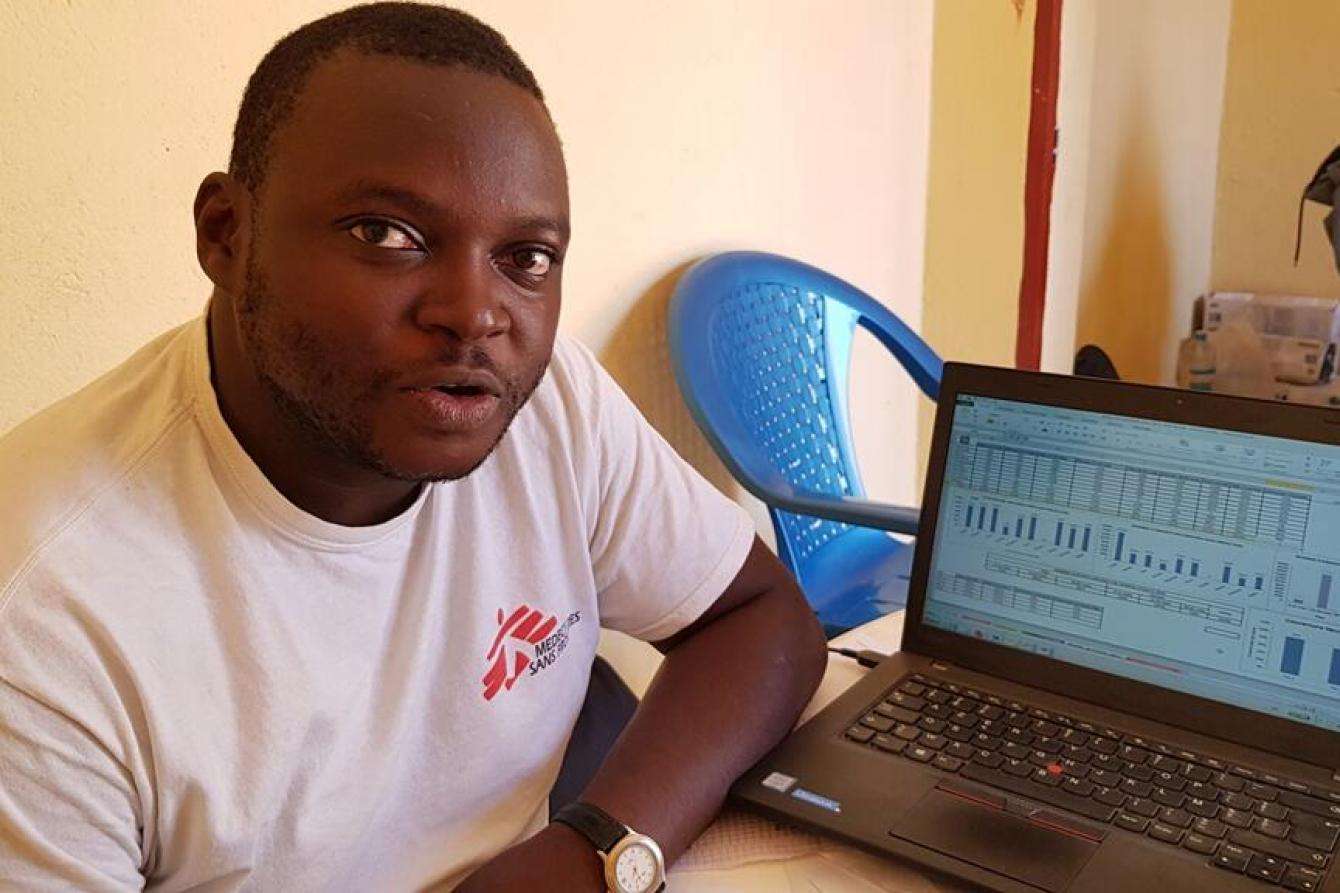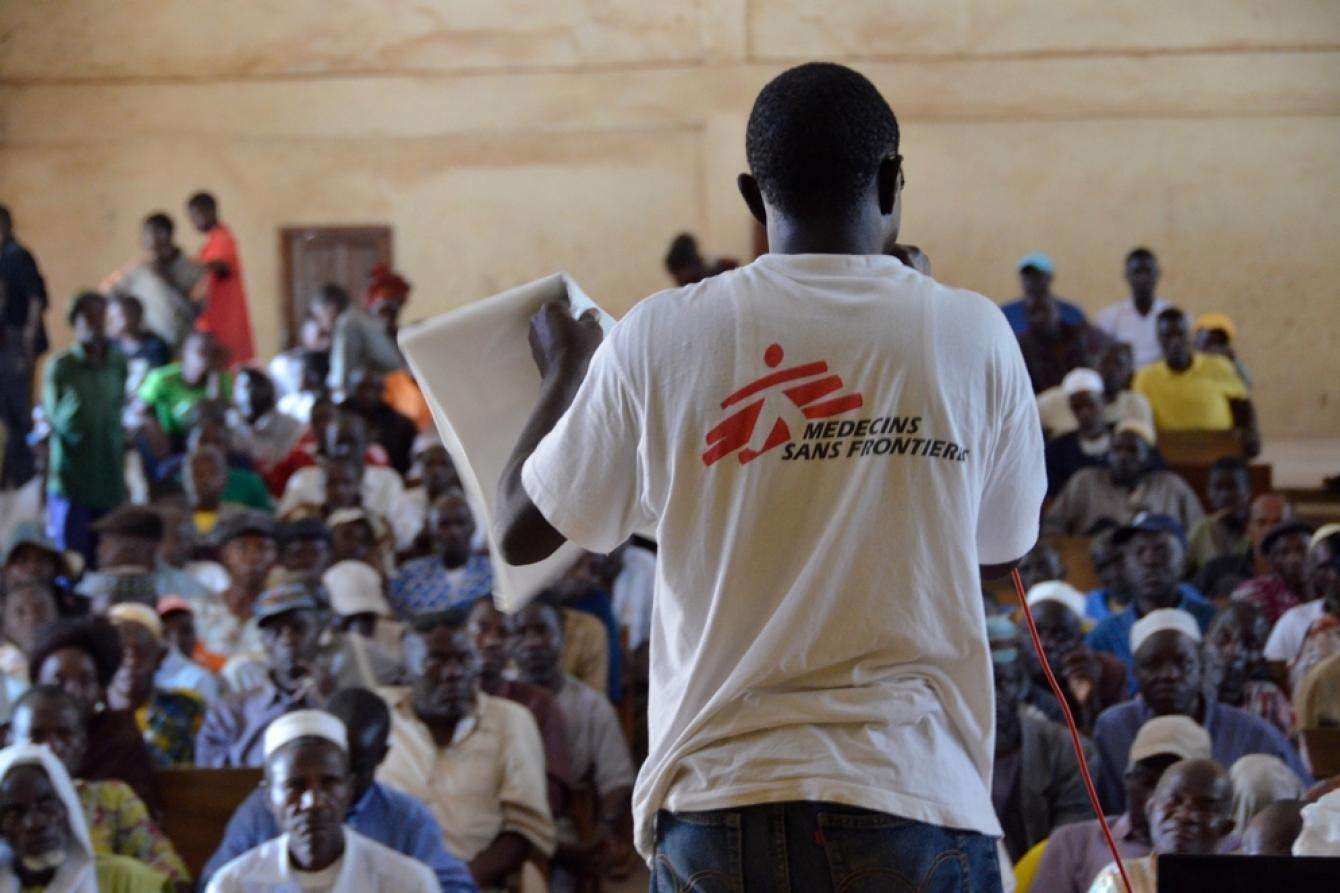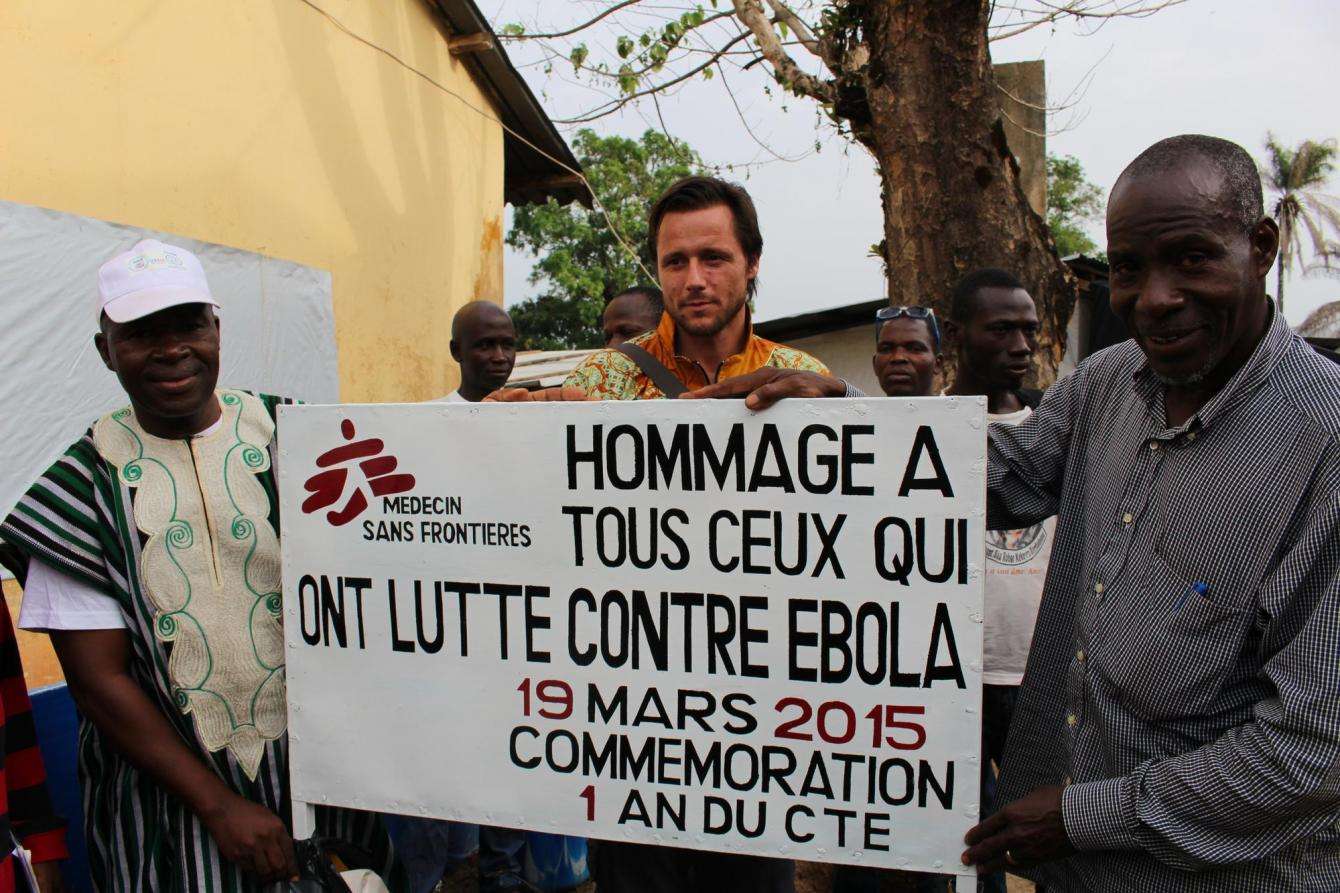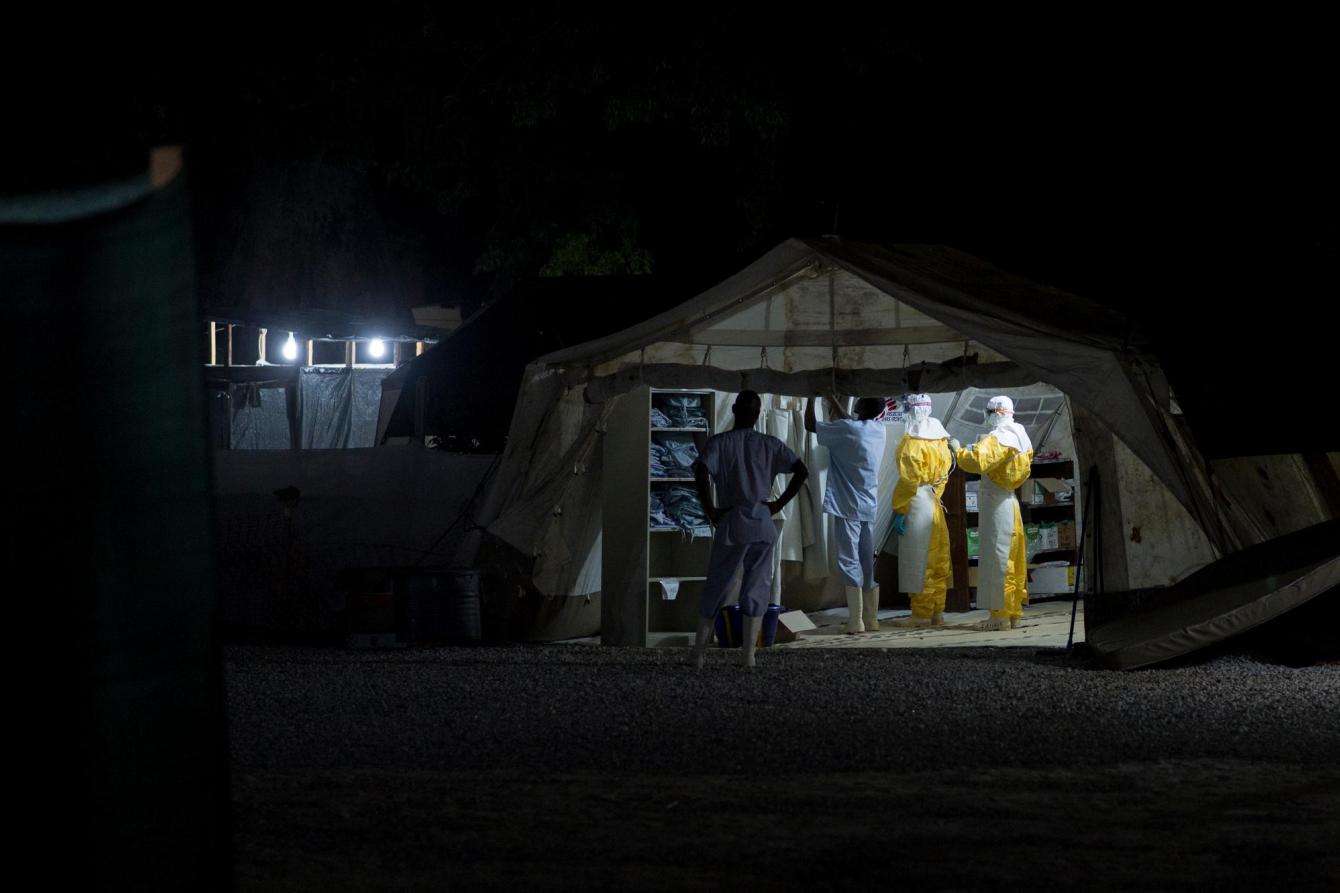On February 14, 2021, health authorities declared a new Ebola outbreak in Guinea. Doctors Without Borders/Médecins Sans Frontières (MSF)—a key responder to the devastating 2014–2016 Ebola outbreak in West Africa—immediately mobilized a team of experienced specialists to form the core of a response team.
Ebola emergency coordinator Anja Wolz answers questions about MSF’s response to the outbreak.
How concerned are you by this new Ebola outbreak?
Anja: With all epidemic responses, it is important to be calm and focused. This is, however, Ebola, and that is always concerning. This is why we have mobilized a team of some of MSF’s most experienced Ebola specialists who will travel to Guinea as soon as the administrative and visa processes allow. We may find that this is a small outbreak—easy to control and contain—or we may find that the problem is bigger and more complex.
What needs to happen at the start of an Ebola response?
Anja: First of all, you need a clear picture of the problem. An epidemiological surveillance team, with one MSF epidemiologist included, departed February 15 for the affected areas of N'Zerekore and Gouéké, in the far south of Guinea. They have started to do the epidemiological surveillance work, but we do not yet have full clarity about what we are facing.

Then there are a series of key, basic things that have to be done rapidly and well:
- Contact tracing (identifying all people who have been in contact with someone who has Ebola, in order to be able to monitor their health and stop that chain of transmission);
- Having medical facilities with the right set-up for isolating and treating Ebola patients;
- Ensuring there are safe funeral practices for anyone who dies of Ebola or suspected Ebola;
- Sharing good, clear health education information;
- Making sure there is a good triage setup in all health facilities, to minimize the chances of Ebola having knock-on consequences on the rest of the health system; and
- Above all else, community engagement.

Community engagement is particularly vital. You need to invest time and energy in talking—and listening—to people in affected areas. You need to adapt the response according to what they say, and you need them to adapt to the risks of Ebola. It has to be a two-way conversation.
What about the prospect of an Ebola vaccine?
Anja: It is certainly true that the existence of Ebola vaccines is one of the key differences from the 2014–2016 outbreak. And this is great news—but we need to be careful in how expectations are set. It is unlikely there will be enough vaccines to cover entire regions or prefectures. This will mean the choices about the use of the vaccine need to be very clearly explained, to avoid misunderstandings and potential distrust in communities affected by Ebola.
It all comes back again to community engagement. We have seen this many times in the past. If people are involved, listened to, and empowered, then an Ebola response will likely go well, with or without vaccines. But if they feel sidelined, unheard, and become nervous or distrustful, then an Ebola response will likely face multiple difficulties, with or without vaccines.

What about the new Ebola treatments?
Anja: It is true that Ebola treatments did not exist at the start of the 2014 outbreak, and so this is a significant difference today. We do not yet know which of the treatments will be used in this response in Guinea, but the very fact of having a treatment option is good for two reasons: It significantly increases a patient’s chances of survival—particularly if the patient starts treatment reasonably early—and it means we have better chances of encouraging people to come early for isolation and treatment.
Before there was a treatment available, it was understandable that people would stay away from Ebola treatment centers, which often became feared as places of death. But with a treatment available, that could change substantially. This matters for outbreak control because when someone with Ebola is isolated, they are not spreading the virus to others.
What will MSF be doing in the response?
Anja: We will have a small multidisciplinary team of Ebola experts, able to turn their hand to pretty much all aspects of the response. We already have an initial advance team that moved to the area to help with the epidemiological surveillance and to start understanding the communities’ knowledge of Ebola so that health education information can be adapted appropriately.
When the dedicated Ebola team arrives, they will combine forces and make quick decisions about where and how MSF can be of most help. The team will have the skills and equipment to do whatever is most needed, from Ebola medical treatment to epidemiological surveillance work, health education, contact tracing, community engagement, or vaccination.

There is an essential thing to keep in mind, for MSF and for all other teams engaged in the response: You need to bring your technical skills (medical or epidemiological or infection-control or health education, et cetera), but you also need to bring your soft community engagement skills. Both are needed in an Ebola epidemic response—or any epidemic response.




